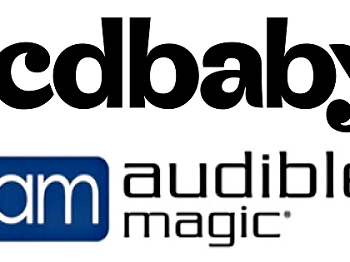Just like everything else technological, the music business has changed considerably in the past few years, and it continues to change at a fast pace. But never has there been an evolution as dramatic as M3.0. Although the phrase has been overused, the paradigm has truly shift ed, and all of the traditional players in the industry have new roles. Let’s look at some of them.
Who's In Control?
 Although it may not be readily apparent, Wall Street and Madison Avenue indirectly control the M2.5 music industry through their tremendous influence on the financial bottom line of record labels, record stores, radio, and television. If you’re owned by a publicly traded conglomerate (as all major labels and radio and television stations are), then you’re in the business of selling stock, not servicing the consumer. What that means is that nothing matters more than quarterly earnings. To keep those earnings as high as possible, Wall Street turns to Madison Avenue to devise the best marketing strategy for keeping the profits high. Madison Avenue (in the form of the major advertising agencies) can bring in the big ad dollars, but only under certain content
Although it may not be readily apparent, Wall Street and Madison Avenue indirectly control the M2.5 music industry through their tremendous influence on the financial bottom line of record labels, record stores, radio, and television. If you’re owned by a publicly traded conglomerate (as all major labels and radio and television stations are), then you’re in the business of selling stock, not servicing the consumer. What that means is that nothing matters more than quarterly earnings. To keep those earnings as high as possible, Wall Street turns to Madison Avenue to devise the best marketing strategy for keeping the profits high. Madison Avenue (in the form of the major advertising agencies) can bring in the big ad dollars, but only under certain content
conditions (like programming that is tailored around the advertising), and the process repeats itself over and over. The advertising industry (Madison Avenue), not the music industry, therefore drives the music cycle in the United States.
In M2.5, it’s all about passing focus-group tests, which have separated listeners into the distinct demographic groups that advertisers are then able to tell stock analysts they have micromarketed their products to. As a result, radio, television, and live performances are no longer about aggregating and entertaining large audiences, but rather just a group of market niches. The bright side to this fact is that there’s one heck of an opportunity opening up for folks who don’t get hung up on trying to sell advertising. Wall Street and Madison Avenue have tried to redefine what music means to people, but most people are voting with their wallets by refusing to buy any new recordings. The view of the vast majority of consumers is that very few new recordings are worth buying compared to those a couple of decades ago, and this has become the dilemma of the industry. You have to sell product to survive, but it’s impossible to develop that product while trying to please your corporate masters. It might work when selling soap or clothing or any other consumer product, but a creative endeavor like music just doesn't work that way. It’s too personal, both to the artist and the consumer, to be a mass-market product.
This content was featured on our original website. Click here to read the full story.















